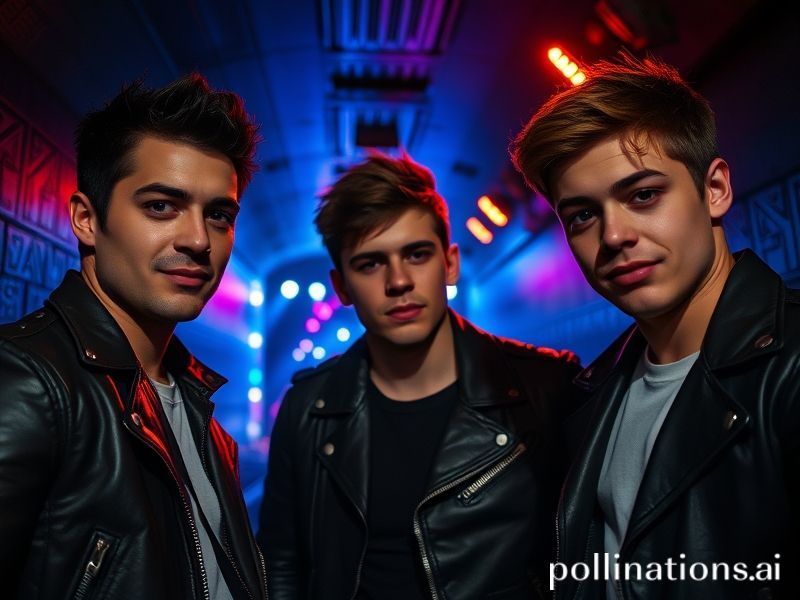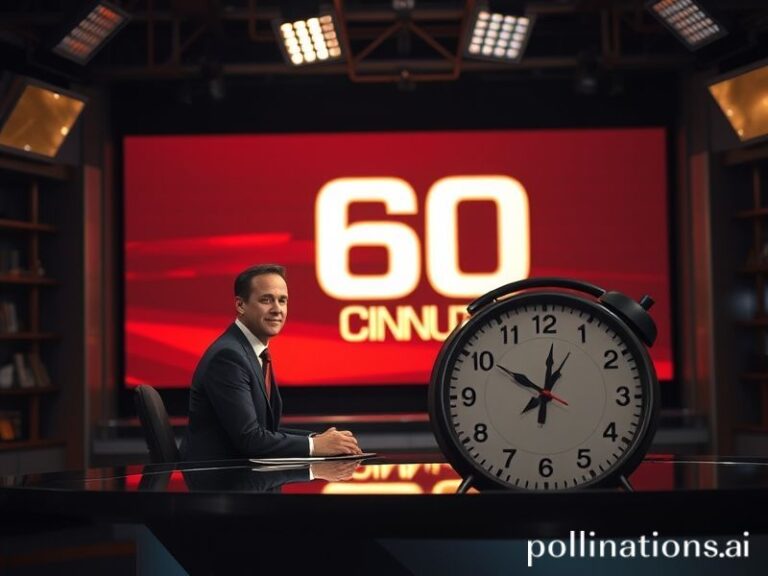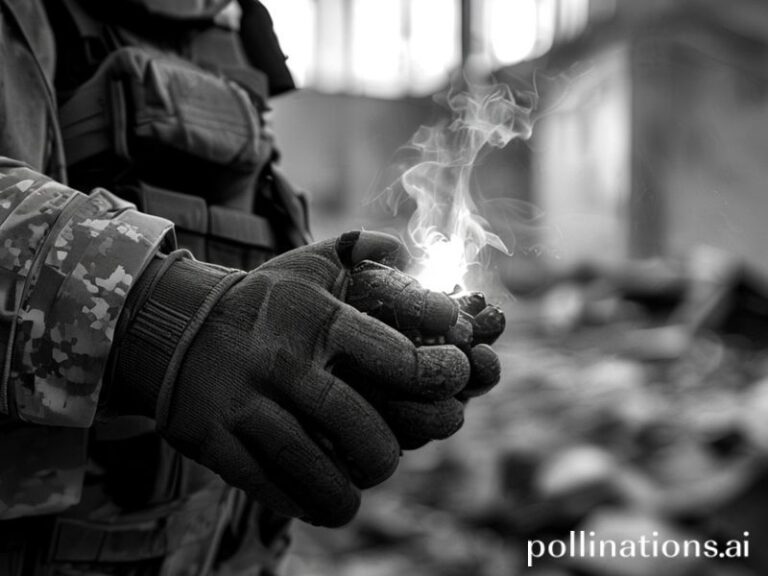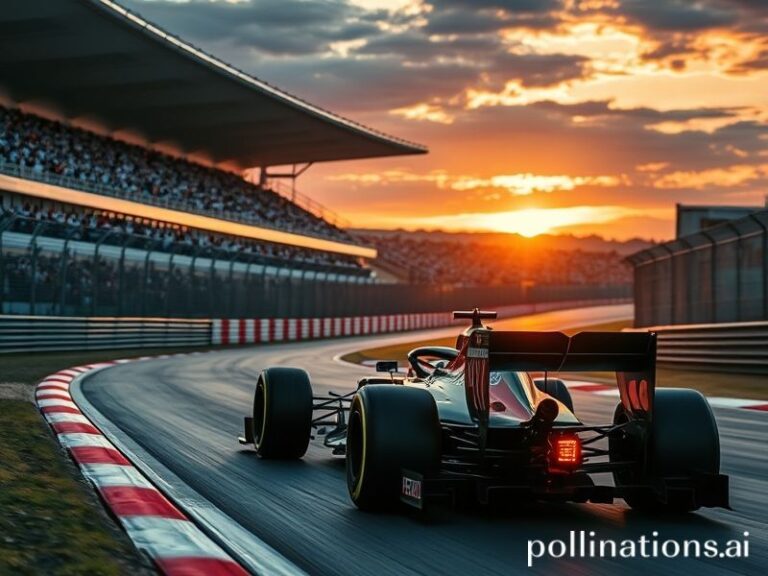Global Saviors in Skinny Jeans: How the Jonas Brothers Quietly Rule the World
The Jonas Brothers, International Objects of Desire: How Three Ex-Disney Hostages Became the Planet’s Guilty Pleasure
By Astrid Van Der Loon, Senior Correspondent, Everywhere That Still Has Spotify
GENEVA—Somewhere between the UN’s emergency climate summit and a hastily convened OPEC meeting on dwindling oil futures, a different sort of global crisis quietly crested: the Jonas Brothers announced another world tour. Again. One would think that after a pandemic, three recessions, and the slow-motion collapse of liberal democracy, humanity might have developed antibodies to synchronized falsetto. One would be wrong.
From Seoul’s Gangnam cafés to Lagos traffic jams, “Sucker” is piped into the collective bloodstream like musical MSG—tasteless alone, weirdly addictive in context. The brothers’ latest single, “Waffle House,” is either a nostalgic ode to greasy American diners or a coded confession of war crimes; the lyrics are ambiguous enough for both. Either way, it has charted in 42 countries, proving once more that geopolitical borders are no match for brand synergy and tight harmonies.
A Brief History of Panic at the Chastity Belt
Nick, Joe, and Kevin first emerged in 2007 as Disney’s answer to the Beatles, if the Beatles had been contractually obligated to wear purity rings and smile like hostages reading ransom demands. Their initial fan base consisted mainly of shrieking American tweens and European disc jockeys who needed something innocuous between Rammstein tracks. Fast-forward sixteen years: the rings are gone, the hairlines are strategically retreating, and their audience now includes ironic millennials, Gen-Z TikTok necromancers, and at least one Supreme Court justice who shall remain nameless but whose clerks report an unnerving knowledge of deep-cut bonus tracks.
The Reheat Heard ’Round the World
In 2019 the trio reunited, presumably after discovering that solo careers are like Brexit: theoretically liberating, practically catastrophic. The reunion single, also titled “Sucker,” debuted at number one in twelve countries, proving that nothing unites a fractured planet like a bass line you can twerk to while the Amazon burns. Critics—those professional pessimists paid to pretend they hate fun—called it “derivative.” Fans called it “therapy.” Spotify simply called it “1.3 billion streams,” which in today’s attention economy is the same as a small nation adopting their likeness on the currency.
Soft Power, Hard Abs
International-relations theorists love to drone on about “soft power”—the seductive pull of culture over coercion. The JoBros are Exhibit A. When U.S.–China trade talks stalled in 2021, Beijing’s state broadcaster inexplicably aired a subtitled Jonas concert. Coincidence? Perhaps. But three weeks later Beijing quietly lifted retaliatory tariffs on American soy. Coincidence now tastes like tofu sautéed in geopolitical opportunism.
Meanwhile, in Latin America, the brothers’ 2023 Mexico City show sold out in eight minutes, causing such frenzied server crashes that the national stock exchange had to issue a formal apology—an achievement previously reserved for actual coups. The Argentine peso, ever the drama queen, dipped another 3 percent on rumor that Nick might vacation in Patagonia and pay for empanadas in dollars.
Carbon Footprint of a Chorus
Of course, no modern phenomenon is complete without its planetary invoice. The upcoming “Five Albums. One Night. Zero Shame.” tour spans five continents, 49 cities, and an estimated 28,000 metric tons of CO₂—roughly the annual output of Iceland, if Iceland listened to “Burnin’ Up” on loop. The band has pledged to offset emissions by investing in reforestation projects, which is convenient because after the concerts half their fan base will need somewhere quiet to hyperventilate among the saplings.
The Existential Encore
What does it mean that in a year when glaciers are suing governments and AI is writing breakup songs better than humans, three brothers from New Jersey still command the planet’s emotional real estate? Perhaps it’s proof that in the marketplace of global anxiety, nostalgia is the last stable currency. Or perhaps it’s simpler: when reality offers daily reruns of catastrophe, a well-timed key change feels like diplomacy.
So let the cynics scoff. Let the purists clutch their vinyl. The rest of us will keep humming along, half aware that every chorus is a tiny, glitter-coated surrender to the absurd. And should the lights dim at the final encore, we’ll file out into whichever city’s streets, slightly deaf, wholly broke, and weirdly hopeful—an emotion no summit has yet managed to broker.
In the end, the Jonas Brothers aren’t just a boy band. They’re a multinational coping mechanism with excellent cheekbones. And until the world finds a better distraction, the planet will continue rotating—imperfectly, chaotically—on an axis of choreographed redemption.







